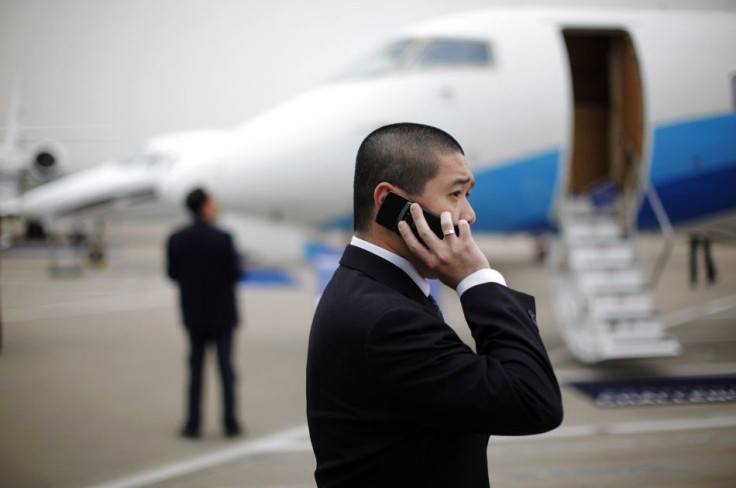Want To Use Smartphones And Tablets In Flight? The FAA Is Looking Into It

Why do airlines make you turn off your "portable electronic devices" before takeoff and landing? It's a question many have asked over the years, and, while the rule is clear, the answer is decidedly foggy.
The issue came to a head last December when "30 Rock" star Alec Baldwin was famously kicked off an American Airlines flight for playing the mobile app "Words With Friends." At the time, he questioned, "Would you really get on an airplane that flew 30,000 feet in the air if you thought one Kindle switch would take it down?"
He made a good point. Most of us probably wouldn't get on a flight if we thought that flipping on an electronic device at the wrong moment would take the plane down. Moreover, for a policy that depends on the honor system (and is often ignored), why hasn't a plane fallen out of the sky by now due to electronic device usage?
A recent Poll Position survey found that 70 percent of 18 to 29-year-olds believe passengers on a plane should be able to play electronic games with others while on the runway and awaiting takeoff.
So, once again, why do airlines make you turn off your laptops, phones, iPads, iPods, eReaders and the like? The Federal Aviation Administration (FAA) and the Federal Communications Commission (FCC) determined in 1991 that electronic devices could send signals that would interfere with the plane's equipment below 10,000 feet, a number many have questioned over the years.
Joe Carpenter of CTIA, the international association for the wireless telecommunications industry, said it's silly that he can't read a book on an e-reader until he's reached this "arbitrary cut-off."
"This has always struck me as an antiquated rule that no one could explain, especially since there are several airlines that offer tablets for their pilots. In the Air Force, our fighter pilots may soon be wearing tablets to provide them with real-time information," he noted Monday on the CTIA blog. "The use of portable electronic devices while on a flight -- the whole flight -- should absolutely be allowed"
The FAA has long claimed there are just too many unknowns about radio signals that these devices give off. Because the pilot and cockpit crew need to focus on critical arrival and departure tasks, the FAA has argued that any use at lower altitudes could interfere and become a safety hazard.
Now, however, they've changed their tune. The FAA announced Monday that it would form a government-industry group to study the current portable electronic device policies and procedures aircraft operators use to determine when the devices can be used safely in flight.
"With so many different types of devices available, we recognize that this is an issue of consumer interest," Transportation Secretary Ray LaHood stated Monday. "Safety is our highest priority, and we must set appropriate standards as we help the industry consider when passengers can use the latest technologies safely during a flight."
The government-industry group will meet for six months beginning this fall to test which new technologies passengers can safely use aboard an aircraft and when they can use them. The group -- comprised of representatives from mobile technology and aviation manufacturing industries, pilot and flight attendant groups, passenger associations and airlines -- will not, however, consider the use of cell phones for voice communications during flight.
The FAA wants the public's input on this and put out a request for comments in the Federal Register on Wednesday.
"We're looking for information to help air carriers and operators decide if they can allow more widespread use of electronic devices in today's aircraft," said Acting FAA Administrator Michael Huerta. "We also want solid safety data to make sure tomorrow's aircraft designs are protected from interference."
Until there is definitive proof that portable electronic devices do not pose a threat to aviation safety, it's still best to follow the current rules ... lest you be kicked off a plane.
© Copyright IBTimes 2025. All rights reserved.






















